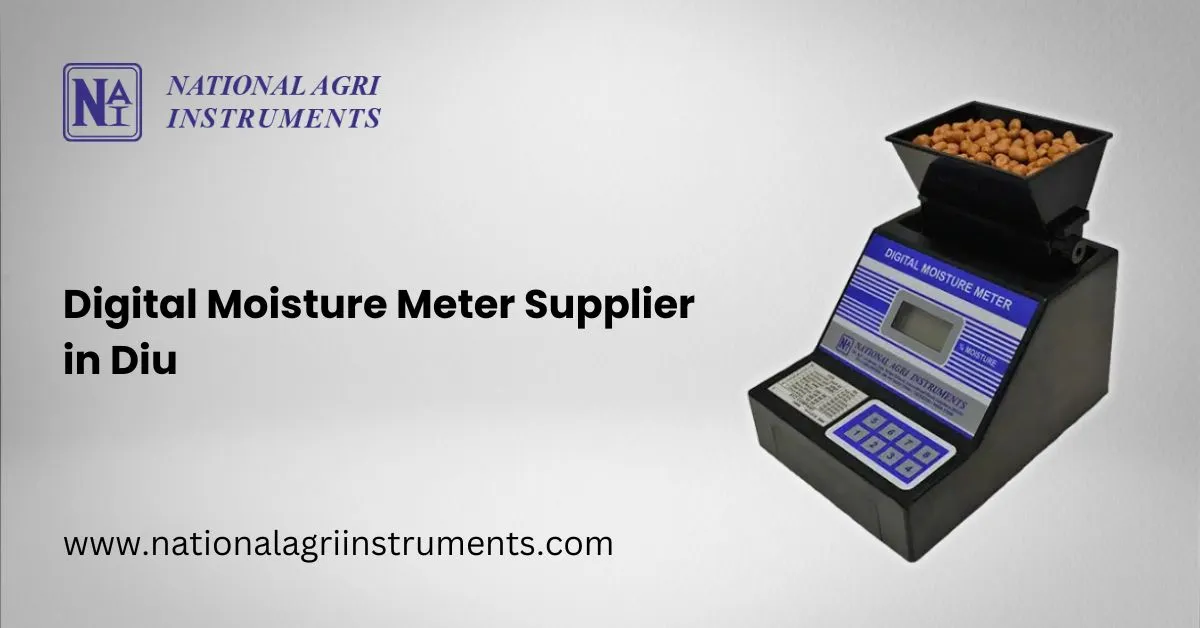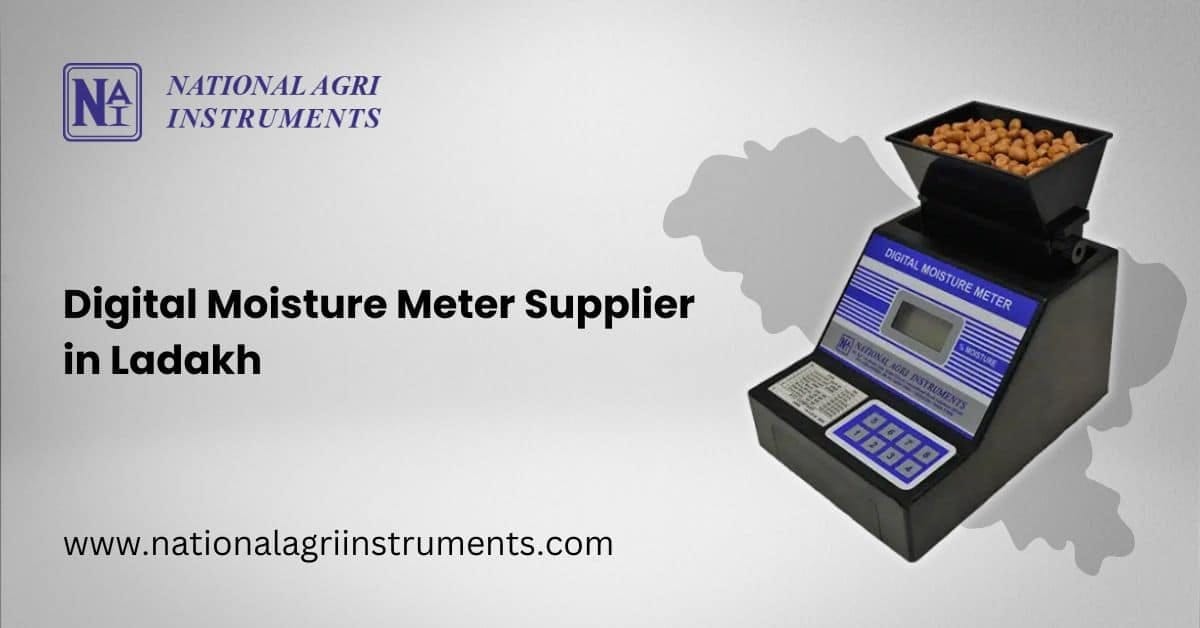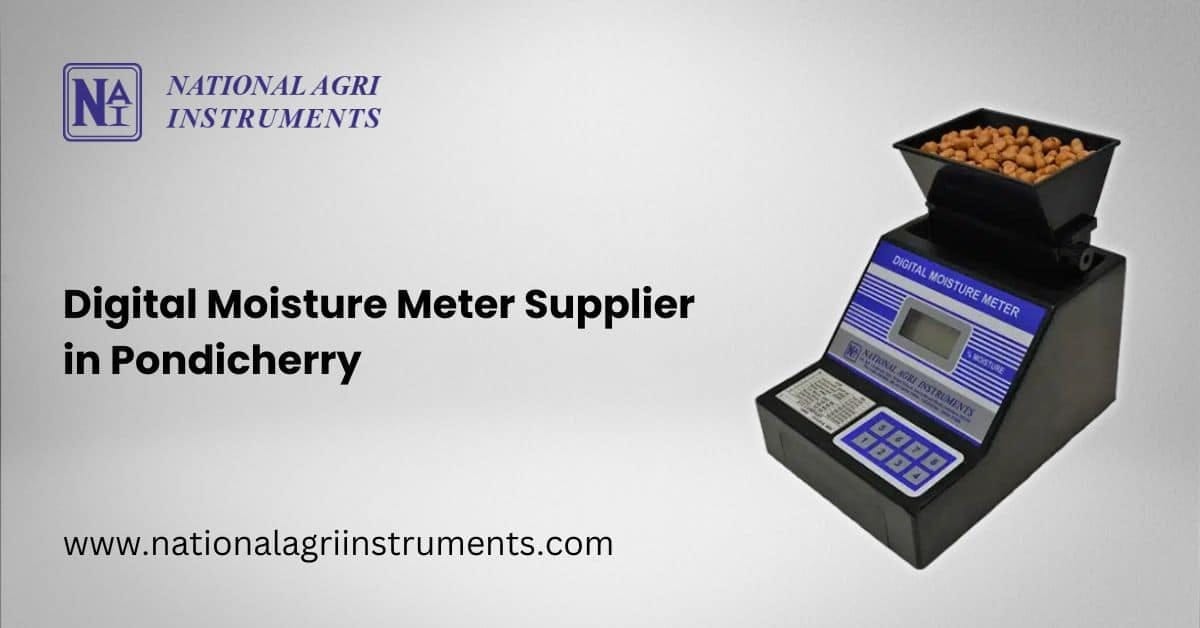When it comes to ensuring the quality and durability of materials, moisture content plays a…
Digital Moisture Meter Supplier in Bihar
Agriculture is the backbone of Bihar’s economy, and the adoption of modern technology is essential to enhance productivity and sustainability. Digital moisture meters have emerged as invaluable tools for farmers, enabling them to make informed decisions about irrigation, crop management, and resource utilization. In this comprehensive guide, we will explore the significance of digital moisture meters in Bihar’s agriculture sector and highlight their benefits, applications, and best practices.
Digital Moisture Meter
Digital moisture meters are devices designed to measure the moisture content in various agricultural products, soil, or other materials. These meters utilize advanced sensor technology to provide accurate and reliable readings, helping farmers determine the optimal moisture levels for crops and soil.
There are different types of digital moisture meters available, including handheld devices, portable units, and integrated systems. These meters vary in features and capabilities, but they all serve the common purpose of assisting farmers in managing moisture levels effectively.
Key features of digital moisture meters include:
- High accuracy and precision
- Wide measurement range
- User-friendly interface
- Durable construction for rugged environments
- Compatibility with different crops and soil types
Importance of Digital Moisture Meter
In Bihar, where agriculture is the primary source of livelihood for millions of people, the importance of digital moisture meters cannot be overstated. These devices play a crucial role in optimizing irrigation practices, improving crop quality, and maximizing yields.
One of the significant challenges faced by farmers in Bihar is water scarcity, especially during the dry season. Digital moisture meters help address this challenge by enabling farmers to monitor soil moisture levels accurately. By knowing when and how much to irrigate, farmers can conserve water resources while ensuring that crops receive adequate moisture for optimal growth.
Additionally, digital moisture meters aid in preventing overwatering or underwatering, which can lead to crop stress, disease susceptibility, and reduced yields. By maintaining the right balance of moisture in the soil, farmers can promote healthier plant growth and minimize the risk of crop losses due to water-related issues.
Moreover, digital moisture meters provide valuable data that farmers can use to make informed decisions about crop management practices such as planting, fertilization, and harvesting. By understanding the moisture needs of different crops at various growth stages, farmers can tailor their agricultural practices to achieve better outcomes.
Overall, digital moisture meters empower farmers in Bihar to overcome the challenges of water scarcity, optimize resource utilization, and enhance the productivity and profitability of their agricultural operations.
Applications of Digital Moisture Meter
Digital moisture meters find applications across various industries in Bihar, including agriculture, food processing, and construction. Here’s how these devices are used in different sectors:
Agriculture: In addition to monitoring soil moisture levels, digital moisture meters are used to measure the moisture content of harvested crops such as grains, fruits, and vegetables. This information helps farmers determine the optimal storage conditions to prevent spoilage and maintain product quality.
Food processing: Food processing industries rely on digital moisture meters to ensure product quality and consistency. By accurately measuring the moisture content of raw materials and finished products, food manufacturers can control the drying, curing, and packaging processes to meet quality standards and regulatory requirements.
Construction: In the construction sector, digital moisture meters are used to assess the moisture levels of building materials such as wood, concrete, and drywall. This helps contractors and builders identify potential moisture-related issues such as mold growth, structural damage, and poor indoor air quality.
Overall, digital moisture meters play a vital role in enhancing product quality, optimizing manufacturing processes, and ensuring the durability and safety of structures in various industries across Bihar.
Choosing the Right Digital Moisture Meter
When selecting a digital moisture meter for agricultural use in Bihar, farmers should consider several factors to ensure they choose the right device for their needs. Some key factors to consider include:
Accuracy: Look for a moisture meter with high accuracy and precision to ensure reliable readings.
Durability: Choose a meter that is rugged and durable enough to withstand the harsh environmental conditions often encountered in agricultural settings.
Ease of use: Opt for a user-friendly meter with intuitive controls and a clear display for easy operation.
Measurement range: Select a meter with a wide measurement range to accommodate different crops and soil types.
Battery life: Consider the battery life of the meter, especially if using it in remote areas where access to power sources may be limited.
Additionally, farmers should research different brands and models, read reviews, and consult with experts or fellow farmers to make an informed decision.
Benefits of Digital Moisture Meter
Digital moisture meters offer numerous benefits to farmers and industries in Bihar, including:
Improved crop quality and yield: By maintaining optimal moisture levels, farmers can promote healthier plant growth and maximize crop yields.
Water conservation: Digital moisture meters help farmers optimize irrigation practices, reducing water wastage and conserving precious water resources.
Enhanced product quality: In industries such as food processing and construction, accurate moisture measurements ensure product quality, consistency, and compliance with standards.
Cost savings: By preventing overwatering or underwatering and minimizing crop losses due to moisture-related issues, farmers can save on water, energy, and input costs.
Data-driven decision-making: Digital moisture meters provide valuable data that farmers and industries can use to make informed decisions about crop management, production processes, and resource allocation.
Sustainable practices: By using digital moisture meters to optimize moisture levels and reduce water usage, farmers and industries contribute to more sustainable agricultural and industrial practices.
Overall, digital moisture meters offer a cost-effective and efficient solution for monitoring moisture levels and improving productivity and sustainability in Bihar’s agriculture and allied industries.
Conclusion
In conclusion, digital moisture meters are invaluable tools for farmers and industries in Bihar, enabling them to optimize moisture levels, conserve resources, and enhance productivity. By investing in these advanced technologies and adopting best practices, Bihar can achieve sustainable agricultural growth, ensure food security, and support economic development across the state.




